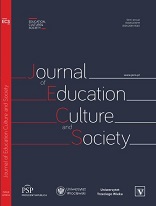The Actor-Network Theory in the Context of Place-Based Pedagogy
The Actor-Network Theory in the Context of Place-Based Pedagogy
Author(s): Agnieszka WieszaczewskaSubject(s): Social Sciences, Education, Inclusive Education / Inclusion
Published by: Fundacja Pro Scientia Publica
Keywords: Actor-Network Theory (ANT);Place-Based PEdagogy
Summary/Abstract: Space (and place) is a topic that is often the focus of researchers representing social and humanistic fields. Analyses of the significance of places to individuals and groups are carried out also on the basis of pedagogy. The subdiscipline which particularly emphasises the role of place is ‘place-based pedagogy’, and, on the Polish ground, so-called ‘pedagogika miejsca’. Therefore, pedagogues are interested in ways of giving meanings to places by their users, connections of the arrangement of space with its reception by individuals, space valorising and so on. In this article, the author presents the theoretical perspective of post-constructivism and the actor-network theory proposed by B. Latour and then developed and modified by other researchers, which is one of the most well-known (and recognised) strategies of a post-constructive reflection on reality. It can successfully become an approach in which pedagogical research related to the spaces in which people operate would be carried out, which would be a valuable complement to pedagogical considerations on place that has been known to date as of the phenomenological perspective.
Journal: The Journal of Education, Culture, and Society
- Issue Year: 9/2018
- Issue No: 2
- Page Range: 167-178
- Page Count: 12
- Language: English

